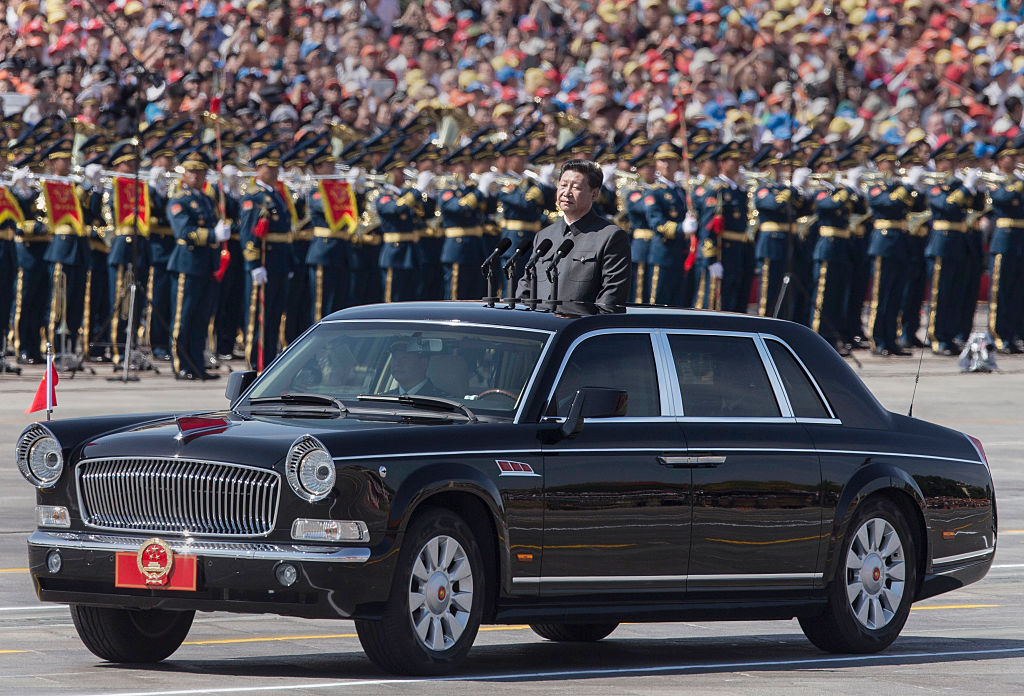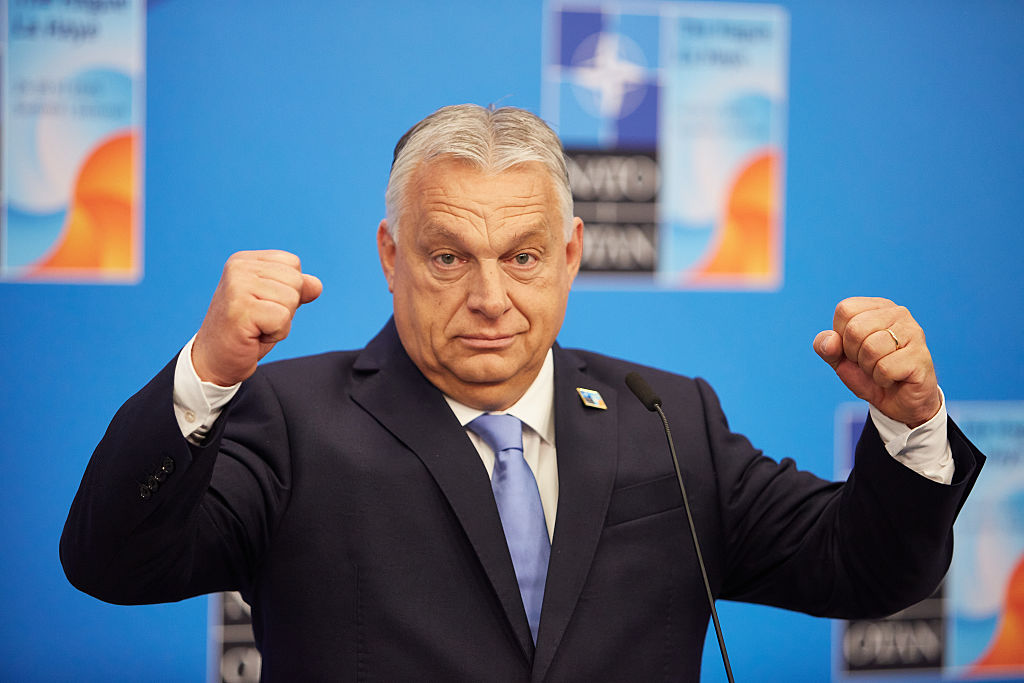When it comes to trade with China, how can Europe navigate the rising storms of geopolitical polarisation? The task is anything but simple. Once hailed as one of the foundations of a post-historical, post-national era, the global market is now a battleground of rival blocs. Europeans must tread carefully—instead of clinging to the ruins of the old order, the continent needs a smart protectionism tempered by strategic pragmatism. To roll over to Beijing’s economic juggernaut would be folly, indeed suicidal in the long term; yet, to simply mimic America’s tariff-heavy retrenchment also risks squandering Europe’s unique strengths, leading to isolation rather than industrial rebirth. The path forward lies not in shutting China out, which is impossible, but in harnessing its might – through investment, cooperation, and a steely focus on national interests – while incentivising re-shoring in order to secure the EU’s place in the multipolar order.
Let us cast the delusions aside. China’s economic ascent is not a fleeting storm, but a permanent, irreversible, indeed tectonic shift. At a spectacular €396 billion in 2022, the EU’s trade deficit with Beijing tells a tale of growing strategic dependence: Indeed, Europe’s industries, from semiconductors to green energy, lean heavily on Chinese supply chains. The scars of COVID-19 and the Russo-Ukrainian War – supply chain chaos, energy shocks – revealed this reliance to be a grave vulnerability. Yet, this is not a state of affairs that can be transformed overnight, not, at least, at an affordable price. The EU cannot wish away China’s industrial prowess, nor should it. There can be no realism when policymakers reject reality itself. Instead, it must play the hand it’s dealt, turning Beijing’s ambitions into Europe’s gain.
The United States offers valuable lessons here. By funnelling billions into factories back home, its CHIPS and Science Act, which authorises $280 billion (€240 billion) in new funding for research, as well as the Inflation Reduction Act, have contributed decisively to spark a US manufacturing revival. This provides a wise model for European nations to follow, and follow it they must. However, the real world is always multidimensional. Tariffs and subsidies have also inflamed trade tensions, driven up prices, and alienated crucial partners around the world. With its smaller economies and fractured politics, Europe must make sure it plays its cards right. The EU’s strength lies in its ability to balance openness to trade with strategic cunning in how it handles it. Brussels’ technocrats, wedded to the gospel of free trade, must shed their dogma and embrace a new sense of realism: One that welcomes Chinese investment while safeguarding strategic sectors, that negotiates hard for reciprocity, and that understands its position correctly. A campaign of European reindustrialisation should be about securing the continent’s autonomy, not stifling it. A policy of aggressive decoupling with China would limit Europe’s trade partners, thus making it more reliant, not less, on those it has left.
This, indeed, should be one of the many factors weighing on the minds of policymakers. Abruptly shunning China risks ceding economic ground to others. Beijing’s investments – railways in the Balkans, EV factories in Central Europe – are not just cash infusions but bridges to growth and an important geo-economic counterweight. Take the €3 billion Budapest-Belgrade railway, a Belt and Road flagship. Or consider China’s BYD carmaker, poised to build a cutting-edge plant in Szeged, Hungary, creating thousands of jobs. By welcoming Chinese capital while insisting on technology transfers and local production, the EU can also bolster its industrial base.
The stakes are economic as well as geopolitical. China’s rise challenges the West, but it also offers Europe leverage. A Europe that engages Beijing can diversify its partnerships, reducing reliance on any single power, be it the US or China itself. The EU must negotiate from strength, demanding market access for its firms, protections for intellectual property, and fair play in critical sectors like 5G and renewables. Hungary, for instance, has shown how to parlay Chinese investment into economic clout, hosting over 500 Chinese firms while positioning itself as one of the United States’ best and most reliable allies. Such pragmatism is the model for European states trying to navigate a fragmented world. The EU should follow suit, fostering ties and competition among global players – China, India, the Gulf – to secure the best terms for itself. That is what genuine strategic autonomy would look like.
Granted, this path is not without danger. These are extraordinarily complex days. Chinese overcapacity, particularly in EVs and solar panels, threatens European producers. Europe’s shipbuilding sector has been decimated by East Asian competition. Undoing that tragedy is a crucial strategic need. Yet, a brisk programme of decoupling is not the way forward. It risks retaliation, higher costs, and, of course, the sclerosis of a fractured EU unable to agree on a unified front. The EU’s recent 35 per cent tariffs on Chinese EVs, for example, may signal resolve, but they must ultimately be paired with incentives for joint ventures and local manufacturing. Carrots and sticks, as they say.
Crucially, the EU must also start looking inward. That may be the difficult path, but it is always the most effective one. Streamlining and limiting burdensome regulations, boosting vocational training, and intelligently allocating subsidies and state resources to foster automation and reclaim a leading position in future-defining technologies – the race for AGI, nuclear fusion, or quantum computing – can make Europe an industrial powerhouse of the 21th century. These are not dreams of a bygone industrial age but realistic bets on a future where Europe leverages global capital to rebuild its edge. By employing a smart protectionism that acts in a measured and targeted manner while privileging non-European partnerships, including with the Chinese, where they can assure win-win outcomes, Europe can turn Beijing’s ambitions into a catalyst for its own renewal.
European irrelevance is not inevitable, but it will be if it misreads its position or mistakes a much-needed policy of industrial rebirth and economic sovereignty with an approach that surrenders its interests instead of defending them. The EU must chart its own course: Not as an isolated fortress, but as a shrewd player in the emerging multipolar game. Engaging China, through investment, negotiation, and strategic leverage, is not a concession to anybody, much less the Chinese; to a substantial degree, it is a reclamation of agency that will ultimately benefit both the nations of Europe and the broader West. In a world of blocs, Europe’s strength lies in its ability to balance. One hopes our leaders have the vision to seize the moment.





With the Middle East ablaze and the world in conflict, Europe must rethink its energy strategy — now